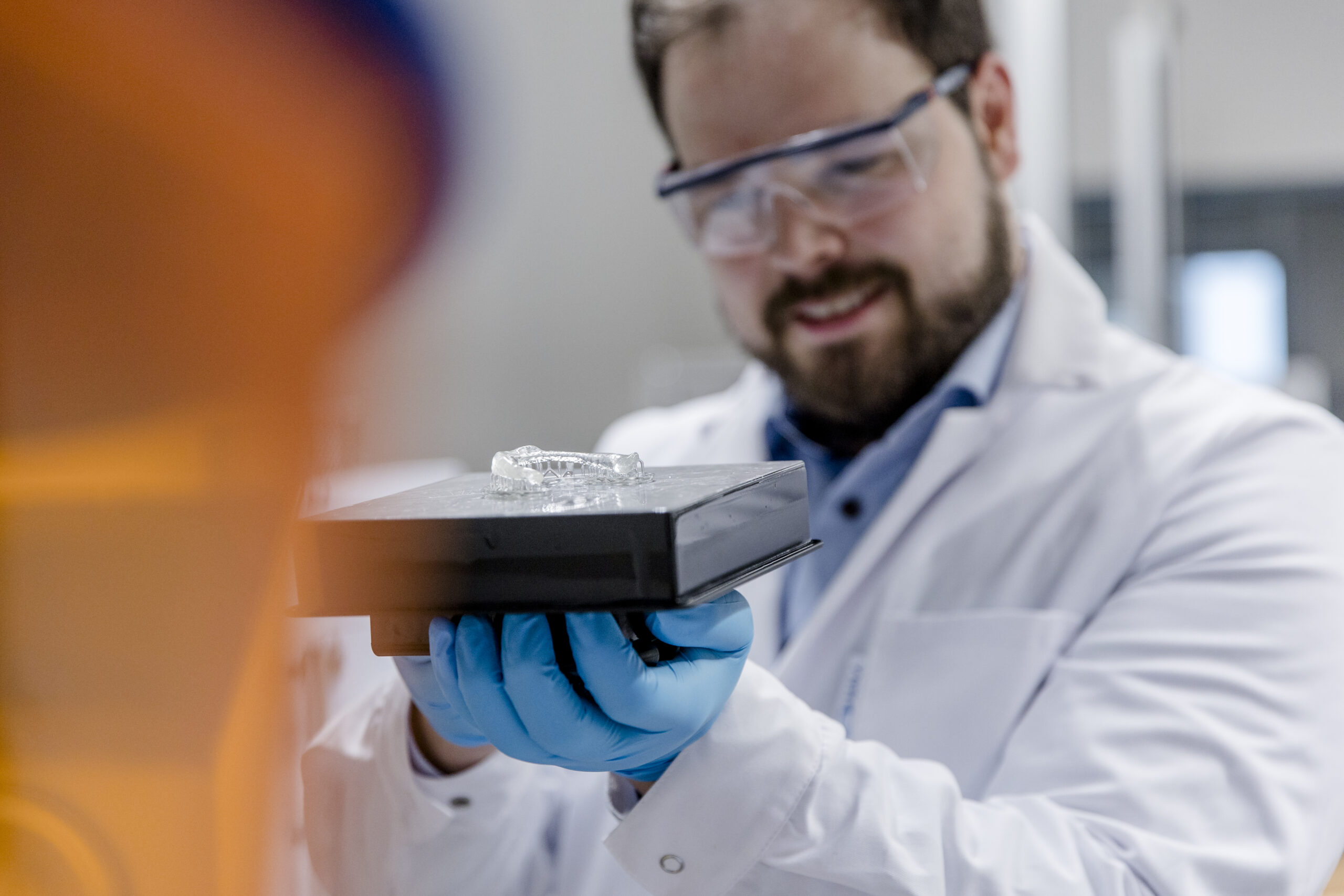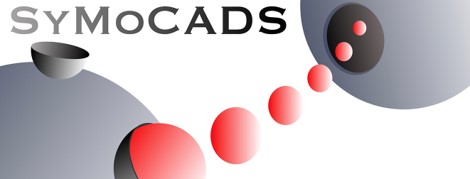Liquid-based additive manufacturing

Additive manufacturing with liquid-based polymers offers a high level of detail resolution, flexibility and design freedom, especially when implementing complex geometries.
At the LKT, the main focus of research is on the optimization of liquid polymer resins with improved properties and in the application for microfluidic channel structures. Further applications in medical technology can be realized using embedded additive manufacturing and centripetal moulds.
In-depth collaboration between research and industry takes place in the Application Center “Advanced Design and Development” at the LKT with the company Carbon.
In addition to systems that cure purely under UV light, there are also so-called dual-cure systems. The term “dual-cure” refers to the combination of two different curing mechanisms that are coordinated with each other and applied one after the other. These include primary curing by UV exposure and subsequent secondary curing by thermally induced cross-linking. While primary curing enables shaping and layer-by-layer component build-up, secondary curing serves to complete polymerization or initiate additional cross-linking reactions, thereby improving the final material properties. In this way, components with improved mechanical, chemical or thermal properties can be produced.
Research at the LKT focuses on the development of novel manufacturing concepts and methods for creating geometrically complex structures that model the fluidic processes within the vascular structures of tumors. Not only the derivation of 3D structures, but also the implementation of tissue properties such as wall topography, surface charge or micromechanics must be taken into account.
Graduiertenkolleg 2590 SyMoCADS
- Synthetic Molecular Communications Across Different Scales: From Theory to Experiments
- Homepage: SyMoCADS
- Research at LKT in P6: production of physical tumour models utilizing additive manufacturing technologies which can be used for the magnet-field driven deposition of pharmaceutical materials
- Contact person at LKT: Daniel Fleischhauer, M.Sc.

Particular attention is paid to the use of halogen-free flame retardants, which not only offer a high level of fire safety, but are also more environmentally friendly. These flame retardants reduce the flammability of components by either creating a protective barrier against the spread of fire or by preventing the access of oxygen. The aim is to develop safe and sustainable solutions.
LKT particularly benefits from the use of complex robotic systems and the integration of state-of-the-art testing technology, and is conducting research on the potential of geometrically complex processing of medical material systems for biomechanically demanding applications.
Our research includes investigating the impact of flexibly positioning the axis of rotation, which allows for a significant increase in geometric complexity as well as the locally divergent adaptation of layer thicknesses and mechanical properties, compared to a fixed rotational axis.
Samuel Schlicht, M.Sc., M.Sc.
Institute of Polymer Technology
Additive Manufacturing
- Phone number: +49 9131 85-71073
- Email: samuel.schlicht@fau.de
